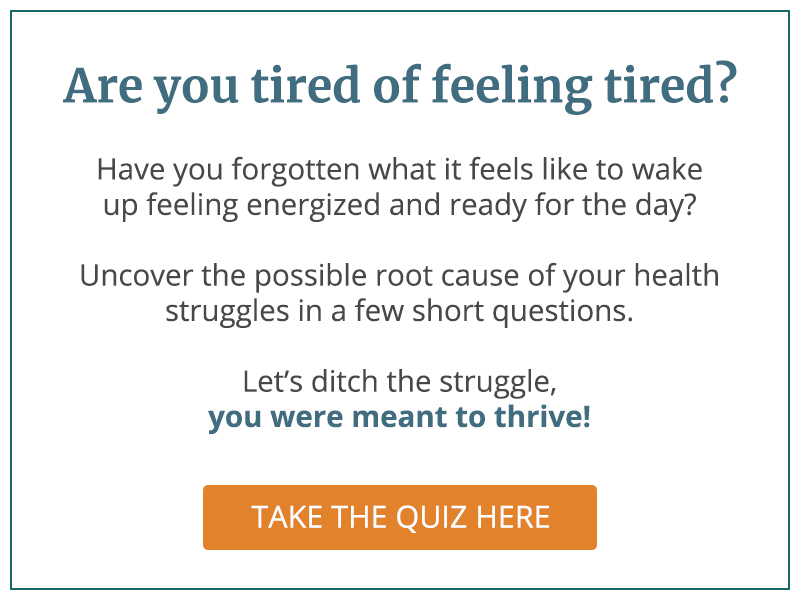In today’s society, we see doctors, health coaches, health companies and the media put so much emphasis on eating the right foods, exercising, and avoiding toxins to achieve optimal health. However, what if I told you there is something that is of equal importance or even more important to achieve great health and longevity?
This “something” has to do with timing. Scientists have published enormous amounts of research on the importance of when you eat, not so specifically what you eat.
“So you’re saying I can have my cake and eat it too?” Yup!
The results have actually been astounding. Maybe that’s why fasting was one of the biggest health trends of 2018! Introducing fasting to your life could have life-changing results.
I’ve analyzed a number of research papers and compiled the findings in this article. By the time you’re done reading it, you’ll be ready to jump on the fasting train to enhance your longevity… I know I did!
What is Fasting?
Fasting is when you restrict your calorie intake for a certain period of time. However, you can still drink plenty of water during this time. There are multiple different ways to fast. Some people go hours or days without eating, some people fast every other day, and others only do it once every week or every month.
In all these circumstances, fasting depletes your cells of food and nutrients. This rids damaged and weakened cells, and then replenishes the strong healthy cells during your next food consumption…More on this later though.
History of Fasting
Humans have been fasting for centuries in certain cultures and religious practices. At a time when we were hunter gatherers, we would have a big meal when food was killed or collected, then we would have to fast until the next opportunity for food came. Our bodies have evolved to embrace fasting.
However, it was only during the past couple decades that our food consumption and food availability has changed. Compared to the years and years that evolution evolves, changes in our society’s diet have been so rapid that they are having such profound effects on our health.
We are living in a time where we have access to food at our fingertips every hour and minute of the day. Everywhere we look there is fast food or quick food for our convenience. Our bodies aren’t created to snack this frequently, and often this is because our bodies haven’t evolved yet to deal with the nonstop food intake. We need to start allowing our bodies a break to restore and replenish itself.

How to Fast
Okay, so now you might be thinking how exactly do I fast? What does fasting entail? Well there are a couple ways to fast and to open yourself up to the benefits of longevity. Be aware that some researchers use these fasting technique names interchangeably under the term intermittent fasting (IF).
Alternate Day Fasting
Fast every 24 hours (every other day). Most people don’t use this method because it’s not as realistic, and it is also hard to stay committed to a diet like that. However, there are other options of fasting that you can try.
Time Restricted Eating
Fast between 12-16 hours. This is usually done over night for the easiest timing. Most people will skip breakfast and eat two large meals – lunch and dinner. This should limit your consumption window to 4-12 hours during the day.
5:2 Intermittent Fasting
Fast for 2 days out of the week and then eat normally for the rest of the remaining 5 days. This is still a bit hard for the general population.
Periodic Fasting
Fasting for 2-3 days straight every several months (done a couple times a year). This method could be doabe for some.
Fasting Mimicking Diet
Fasting for 3-5 days once to a few times a year. You consume about 50% of your normal calorie consumption for those couple of days (short term) and then return back to your normal caloric intake.
Benefits of Fasting
The list of benefits from intermittent fasting seems to grow every year. More and more studies are being published that shedding light on the benefits of fasting, which is why so many people have started with this practice.
These studies that have found that fasting may:
- Reduce High Blood Pressure, Triglycerides and Cholesterol
- Aid in Blood Sugar Control
- Fight Inflammation
- Increase Brain Function
- Help in Weight Loss
- Increase Effectiveness of Chemotherapy
- Extend Longevity
If all those health benefits don’t impress you or you are still a bit skeptical about fasting benefits, then let me explain the science behind it.
The Science Behind Fasting
Time Restricted Fasting
One study performed with mice showed that the mice who were given only one meal a day compared to mice who had access to food at all times in the day, lived about 11% longer. These mice lived longer even though they weighed about the same and ate about the same amount of total food. This fasting group also developed fewer diseases later in life when compared to the mice who could eat whenever they wanted.
The same study demonstrated that the specific dietary composition of their food did not affect their longevity. It was only the extended daily fasting that had a significance on health. This could be because the long extended fasting period could allow the body to repair and focus on maintenance, which it couldn’t do with constant exposure to food.
Fast Mimicking Diet
Because fasting for such long time periods may be hard for the majority of the population, some researchers set out to find out whether a diet, which mimicked fasting, could have health benefits as well. By doing so, it could also eliminate some risks that come along with extended fasting times.
During one study, mice were given a restricted diet (very low calorie, low protein) for 4 days and then their normal diet for the following 10 days. This was done two times a month for several months. At the end, this mimic fasting group had lower blood sugar and insulin levels, greater bone density, less fat around their organs, increased brain cell development, increased immune system functioning, and had less tumors and skin lesions at the end of their life. However, when the mice were reintroduced to the regular diet, these levels went back to their original states. From this one study alone, the benefits of fasting seem too good to be true.
Part of this study also included human participants. It showed that people who ate a plant based diet that consisted of about 34-56% of their normal caloric intake for 5 days a month, over a 3 month span, and then continued with their normal diet, had better metabolic profiles then the participants who ate their normal diet. They had lower blood glucose, lower body weight and reduced markers for heart disease.
This is great to hear because fasting can be hard for people to follow. Research shows that cutting your daily caloric intake to 50% (plant based diet) for only 5 days a month can show signs of better health.
Protection Against Chemotherapy
In 2008, a study was published that showed fasting for 2 days protected healthy cells against chemotherapy toxicity. If patients healthy cells were protected, then the chemotherapy could work harder to destroy the unhealthy cancer cells more efficiently, without destroying all the cells. Instead of putting cancer patients on a strict fast, some cancer treatments put their patients on the fast mimicking diet to still reap the benefits.
Further investigation from this original study led to the discovery of how this fast mimicking diet (FMD) can have benefits on aging, heart disease, cancer, and diabetes.
With all these studies being published on the benefits of different health issues, it’s a real possibility that intermittent fasting could be used to prevent and treat health diseases and promote life longevity and optimal health.
It’s About Restoring Good Nutrients
Many studies have said that it doesn’t matter what you eat but when you eat. However it’s important to mention that eating a whole foods plant based diet also contributes to great health.
When you starve your cells for a certain amount of time, it’s imperative to give them nutrient dense foods filled with important vitamins, minerals and antioxidants once it’s time to replenish them.
This doesn’t mean you need to skip dessert or can’t have a sweet treat now and then, but try to consume colorful fruits and vegetables to help your body and cells stay healthy.
Is Fasting Right for You?
With all the evidence available, fasting has shown on countless occasions that it’s a great way to enhance your health and longevity. If you want to live a long and healthy life, fasting could be the stepping stone needed to lead you there.
Fasting can be done many different ways. Finding the way that best fits your lifestyle is the key. Once you find which technique works best for you, it’ll be easy to maintain this habit and reap the amazing long term health benefits it poses.
Are You Ready to Reset Your Metabolism? Let’s work together to create a strategy that leads to more energy, healthy weight loss, and even more confidence. Click here to learn more and get started today!


